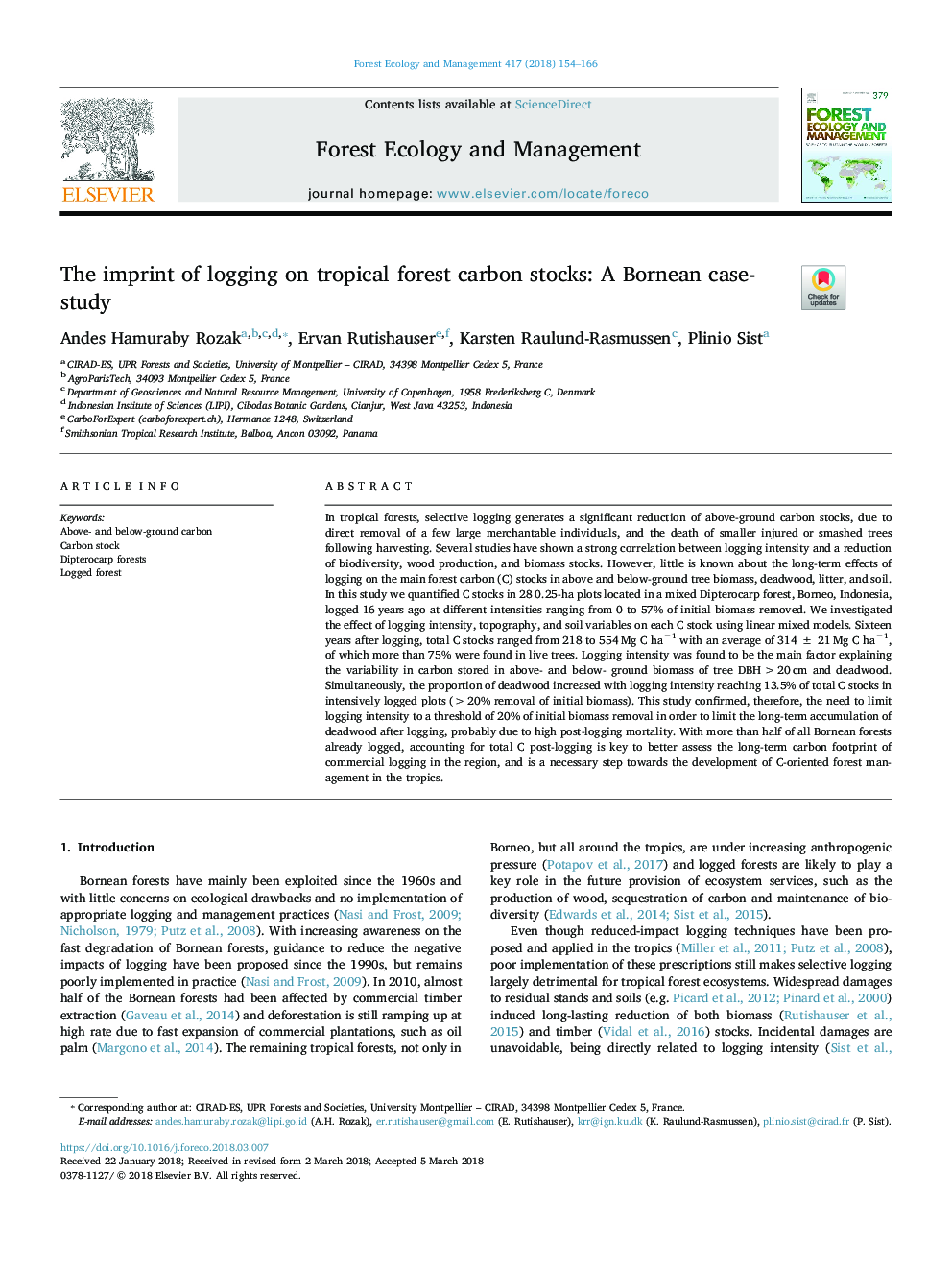| کد مقاله | کد نشریه | سال انتشار | مقاله انگلیسی | نسخه تمام متن |
|---|---|---|---|---|
| 6541751 | 1421342 | 2018 | 13 صفحه PDF | دانلود رایگان |
عنوان انگلیسی مقاله ISI
The imprint of logging on tropical forest carbon stocks: A Bornean case-study
ترجمه فارسی عنوان
تأثیر ورود به سیستم در ذخایر کربن استوایی: مطالعه موردی بورنه
دانلود مقاله + سفارش ترجمه
دانلود مقاله ISI انگلیسی
رایگان برای ایرانیان
کلمات کلیدی
موضوعات مرتبط
علوم زیستی و بیوفناوری
علوم کشاورزی و بیولوژیک
بوم شناسی، تکامل، رفتار و سامانه شناسی
چکیده انگلیسی
In tropical forests, selective logging generates a significant reduction of above-ground carbon stocks, due to direct removal of a few large merchantable individuals, and the death of smaller injured or smashed trees following harvesting. Several studies have shown a strong correlation between logging intensity and a reduction of biodiversity, wood production, and biomass stocks. However, little is known about the long-term effects of logging on the main forest carbon (C) stocks in above and below-ground tree biomass, deadwood, litter, and soil. In this study we quantified C stocks in 28 0.25-ha plots located in a mixed Dipterocarp forest, Borneo, Indonesia, logged 16â¯years ago at different intensities ranging from 0 to 57% of initial biomass removed. We investigated the effect of logging intensity, topography, and soil variables on each C stock using linear mixed models. Sixteen years after logging, total C stocks ranged from 218 to 554â¯Mg C haâ1 with an average of 314â¯Â±â¯21â¯Mg C haâ1, of which more than 75% were found in live trees. Logging intensity was found to be the main factor explaining the variability in carbon stored in above- and below- ground biomass of tree DBH >20â¯cm and deadwood. Simultaneously, the proportion of deadwood increased with logging intensity reaching 13.5% of total C stocks in intensively logged plots (>20% removal of initial biomass). This study confirmed, therefore, the need to limit logging intensity to a threshold of 20% of initial biomass removal in order to limit the long-term accumulation of deadwood after logging, probably due to high post-logging mortality. With more than half of all Bornean forests already logged, accounting for total C post-logging is key to better assess the long-term carbon footprint of commercial logging in the region, and is a necessary step towards the development of C-oriented forest management in the tropics.
ناشر
Database: Elsevier - ScienceDirect (ساینس دایرکت)
Journal: Forest Ecology and Management - Volume 417, 15 May 2018, Pages 154-166
Journal: Forest Ecology and Management - Volume 417, 15 May 2018, Pages 154-166
نویسندگان
Andes Hamuraby Rozak, Ervan Rutishauser, Karsten Raulund-Rasmussen, Plinio Sist,
